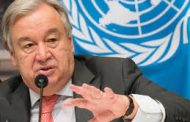In response to one of the major demands of the demonstrators on June 30, Prime Minister Dr. Abdallah Hamdok, has accepted the resignation of six of the Cabinet ministers – including Ministers of Finance, Foreign Affairs, Health, Energy, transport, agriculture and Animal Resources, besides deposing the ‘controversial’ Minister of Health, Dr. Akram Al-Tom. The Prime Minister assigned the undersecretaries of those ministries to be in charge (as acting misters) till new ministers are named to take over.
To my view the expected measures are not enough to deal with the great challenges facing the Transitional Government (TG) vis-à-vis ten-month poor performance of the Executive as the suffering of the people is still increasing with persistent rise of prices along with acute and chronic shortages in basic needs such as bread, medicines, oil,energy and other basic necessities.
If we are to base our assessment of the TG on the criterion of the overall performance, I think that Hamdok should have taken a different path in handling the transitional period. A greater reshuffle is needed together with radical change in policies. The TG suffers from missing the compass as it has muddled itself with some issues that are not of top priority for the transitional period or to people – such as controversy of the relationship between religion and the State – or secularism versus Sharia’ (Islmaic laws), discussing the issue of self–rule or autonomy to some ‘marginalized’ areas (such as the Nuba, the Blue Nile area, etc). Such issues are to be left for a democratically elected government. Also the TG has engaged into prolonged talks with Darfurian Resistance Movements and linked the formation of states’ governments with signing a peace agreement with them – a matter which is unpredictable – causing administrative gaps in all states (with only army generals as acting governors). This has resulted in terrible deterioration of services in all municipalities, triggering demonstrations in some areas expressing dissatisfaction and discontent with the economic and political situation (civil governors not nominated yet).
This state of affairs has culminated into a several-weeks-sit-in organized by the inhabitants of (Nerteti) locality at Marra Mountain (mid-Darfur state) in Western Sudan. The civil society representatives there said the people are fed up of enduring perpetual sufferings from insecurity, harsh economic conditions, and lack of proper health services as well as negligence of government to their demands. Although some ministers visited the protestors, listened to them and pledged to respond to their demands, the same situation is being undergone by so many areas in the country.
This entails a radical shift in policies at the central level including prioritizing issues, nominating civil governors and filling in the administrative gaps at the local levels. Otherwise this limited reshuffle would not meet the challenges and may jeopardize the transitional period or might impede its process towards organizing elections for a democratic rule – a goal for which the Sudanese people have sacrificed very much to attain.
https://khartoum-today.net/
 Sudan army chief Al Burhan freezes bank accounts of paramilitary RSF
Sudan army chief Al Burhan freezes bank accounts of paramilitary RSF Sudan’s SAF & RSF sign agreement intended to lay groundwork for humanitarian assistance
Sudan’s SAF & RSF sign agreement intended to lay groundwork for humanitarian assistance SAF, RSF agree on extension truce for the sixth time
SAF, RSF agree on extension truce for the sixth time Army, RSF agree to extend truce for 72 hours
Army, RSF agree to extend truce for 72 hours Sudanese people fled to Egypt amid acut humanitarian crisis
Sudanese people fled to Egypt amid acut humanitarian crisis THE ELEPHANT IN THE ROOM
THE ELEPHANT IN THE ROOM Death toll from Sudan fighting tops 180 as clashes in Khartoum enter fourth day
Death toll from Sudan fighting tops 180 as clashes in Khartoum enter fourth day By the UN Secretary-General Op-ed on G20 – 8 billion
By the UN Secretary-General Op-ed on G20 – 8 billion A strong military key to maintaining world peace
A strong military key to maintaining world peace Beautiful China shows new chapter of ecological conservation
Beautiful China shows new chapter of ecological conservation

HAMDOK’S DILEMMA: CHANGING PERSONS OR POLICIES?
About the author
Related Articles
2020 All rights reserved khartoum-today.net 0124293222







